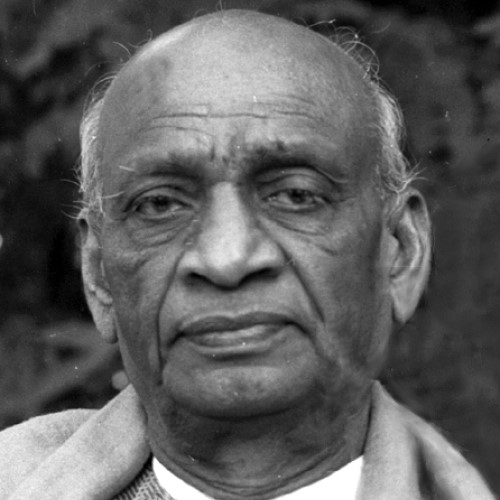Early Life
Sardar Vallabhai Patel was born on 31st October 1875 and educated at Nadiad High School and the Middle Temple, London. He began his career as a barrister.
In 1917, his career in government took off with his election to Ahmedabad Municipal Corporation as the Sanitation Commissioner. He extended electricity, drainage and sanitation facility to all parts of the city and conducted major educational reforms including fighting for the recognition and payment of teachers. In 1920, Patel was nominated and elected as the President of the newly formed Gujarat Pradesh Congress Committee.
Role in India’s Independence Movement
Patel was actively involved in the Non-Cooperation, Satyagraha and Quit India movements and was at various points arrested by the British. When Gandhi was imprisoned in 1923, he led and organised the Satyagraha movement in Nagpur.
All along, Patel rose within the Congress Party ranks and was elected as its President during the 1931 Karachi session, at which the Congress passed the historic Karachi Resolution.
Contribution to Constitution Making
Patel was elected to the Constituent Assembly from Bombay on a Congress Party ticket. He was a member of the critical Advisory Committee and was more active in the Committee stages than the plenary debates. His interventions in the debates were concentrated in the early stages of constitution-making, particularly when the Assembly was considering the interim reports of the Sub-committees on Fundamental Rights and Minority Rights.
Later Contributions
During the framing of India’s Constitution, he was the Home and Information and Broadcasting Minister in the Interim Government and played a critical role in negotiating with and integrating the 565 princely states into the Union of India earning him the moniker ‘Iron Man of India’. As the first Home Minister and Deputy Prime Minister of independent India, he organized relief efforts for refugees. He held the post of Minister for States after July 1947 and Minister of Home and States after 1948.
Patel passed away on 15th December 1950.
- While discussing the final Report of the Minorities Committee on 26 May 1949, Patel expressed his satisfaction at the fact that the representatives of all the minority communities had eschewed separate electorates.
- Sardar Vallabhai Patel: The Man Who United India by B Krishna (HarperCollins India, 2018).
- The Sardar of India: Biography of Vallabhbhai Patel by Pran Nath Chopra (Allied Publishers, 1995)
- Patel: A Life by Rajmohan Gandhi (Navajivan Publishing House, 1991).
- India’s Bismarck: Sardar Vallabhbhai Patel by Balraj Krishna (Indus Source Books, 2007).

